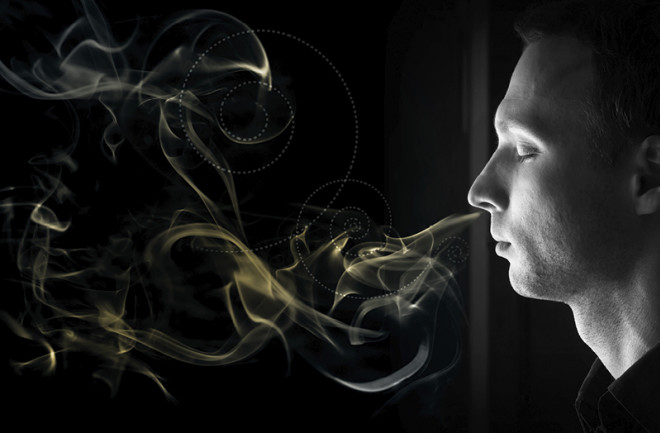Imagine walking into a meeting room. You shake hands with colleagues, then everyone sits down. Within seconds they all start sniffing their palms, picking up clues about you from the chemical traces left over from the handshakes.
Sniffing palms after a handshake, usually within 30 seconds of the interaction, would likely help people learn about someone’s health and genetic compatibility, according to a 2015 study by researchers in Israel. Sniffing can also offer information on people’s emotional state, such as if they are happy, sad or fearful. The smeller gleans these emotions subconsciously, of course.
For decades, scientists believed humans were not very good at detecting and identifying odors. Our animal ancestors used their noses way more than we do in modern society, says Jessica Freiherr, a neuroscientist at RWTH Aachen University, in Germany, and the author of several studies on the human sense of smell. “We are disconnected from our noses,” she says. “We need them much less in everyday life. And our vision overrides the sense of smell in a lot of situations.”
But that doesn’t mean we don’t have powerful smell potential. A 2014 study showed that we can distinguish at least 1 trillion different odors — up from previous estimates of a mere 10,000.

